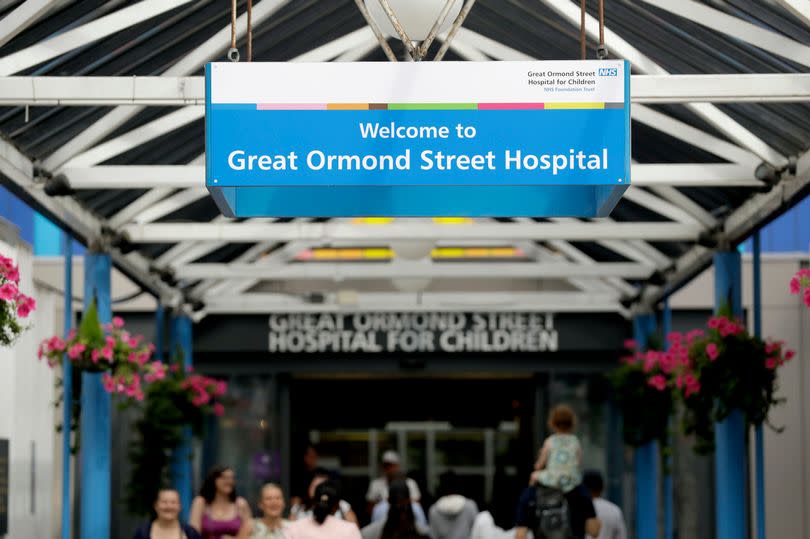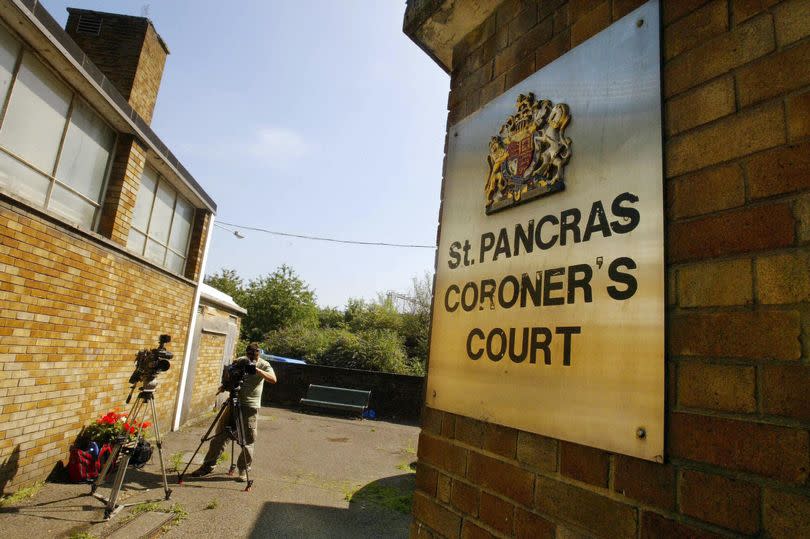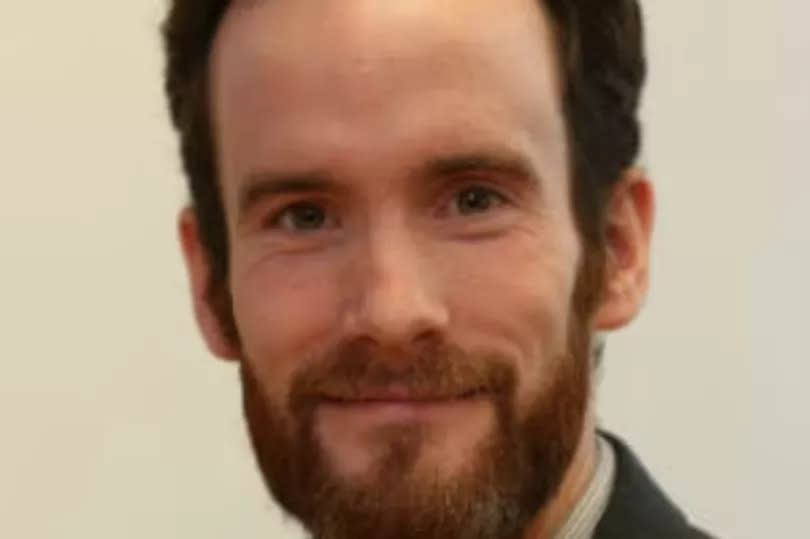Fit and healthy Bucks girl, 16, dies after vocal cords 'slammed shut' during routine ear operation

A fit and healthy teenager who went under the knife for a deformed ear died after her vocal cords 'slammed shut' due to rare complications from general anaesthetic, a court heard. Holly Fairchild was admitted to Great Ormond Street Hospital for elective surgery on her left ear, due to anxiety she was experiencing about how it looked after an infection from a cartilage piercing.
The 'very active' 16-year-old, from Haddenham, a small village near Oxford, was a talented footballer and had previously gone under general anaesthesia with no issue. But on Friday (June 21), St Pancras Coroner's Court heard she developed severe form of a common issue in children, where the vocal cords become restricted, which can sometimes have fatal consequences.
Holly grew up in a loving family, with two brothers and adoring parents who remembered her as a 'confident, fun, and, sometimes, loud young lady' who 'gave her best and never stopped smiling'. The 'top goalscorer' loved animals and had already learned how to drive a tractor and digger, with her sights set on a driving license before she headed to a local sixth form.
READ MORE: Met Police officer sacked after sending 1,000 texts to ex-girlfriend in 3 weeks

"She really was the best of us and so much more. We all miss our beautiful Hollypops beyond words. She has left an enormous hole in our hearts," said her family. "We found this whole process difficult to go through. We had to ask the NHS Trust so many questions that still remain unanswered. We remain concerned what should have been a routine operation led to an outcome that is devastating."
Some of those questions were answered on Friday by Dr Leda Lignos, an anaesthetic registrar at GOSH, who gave evidence for over three hours, explaining, sometimes tearfully, the complex medical decisions and processes at the heart of Holly's tragic death.
While she did not go through the risks of general anaesthesia with Holly personally, Dr Lignos started by explaining the current consent process for general anaesthesia. Dr Lignos said this would generally involve a chat with the patient, or their parents depending on age, about the side effects of anaesthesia, and use of the word 'death' in discussion about mortality risk.
However, current procedure means a pre-operative assessment clinic and the use of a written form is not a pre-requisite for giving consent for general anaesthetic. Dr Lignos said this is being looked at nationally by the Royal College of Anaesthetists due to the discrepancy with surgical consent, which requires a written consent form.
In Holly's case, there was a discussion about surgical risks with the plastic surgeon, Dr Neil Bulstrode, in February 2022, but there was no pre-op clinic or use of a formal written consent form in relation to the use of general anaesthetic. This is not unique to GOSH.
The court heard there were scant details of the conversation she did have with her anaesthetist, on the day of her operation. Dr Lignos said this would routinely include reference to mortality risk, but anaesthetists may make a judgement call about the extent they increase an otherwise healthy patient's anxiety, depending on their comorbidities and the extent of the surgery.
"I do not know the exact wording [used in the discussions], he may have alluded to it [risk of death]," said Dr Lignos. "It's an uncomfortable conversation to have. Especially something routine, where you do not expect it to happen."
Dr Lignos said getting maximal information in advance, through a pre-op assessment, is 'better' and 'ideal', even though they are not always done. "It's just a pressure on staffing," she told the court. "There is a desire to get every single patient through. That's across the board in the NHS. But it's a very difficult thing to try to achieve."
'Slammed shut'
The delicate surgery, on August 23 last year, went without a hitch, but as soon as Dr Bulstrode left theatre things began to go wrong. Holly developed a severe form of laryngospasm, which doctors described to her parents as her vocal cords having 'slammed shut'.
Holly had been intubated with a tube after scoring well on a system used to determine how open a patient's airway is, getting a Mallampati score of 2. While the use of a tube is 'more straightforward' for more complex surgeries, over a laryngeal mask, it carries a higher risk of laryngospasm, a common issue with children under general anaesthetic, explained Dr Lignos.
Normally pressure and the use of propofol, an anaesthetic, will relieve the issue, but in Holly's case this did not work and she began to suffer from an associated condition called negative pressure pulmonary edema (NPPE), which draws fluid from the blood vessels into the lungs.
The use of another drug called succinylcholine, a muscle relaxant, which was kept 20 seconds away in a nearby fridge, also failed to halt the laryngospasm. In Holly's case, this led to a decrease in her oxygen levels and rapid deterioration, which sadly resulted in a hypoxic cardiac arrest, reducing blood to her brain. Holly was taken to intensive care and sadly died two days later on August 25.
The court heard evidence that while mild laryngospasm is 'very common' in children, the severe form Holly suffered is 'less common' and that the chance of NPPE is 1/1000. Dr Lignos said this was the worst case of NPPE she had ever seen, and added she had only reached for succinylcholine to treat a patient once before in her 14-year career.
'Concerns about accuracy of records'

In his concluding remarks, Dr Richard Ian Brittain, assistant coroner for Inner North London, recalled how Holly had been referred from Addenbrooke's Hospital in Cambridge, before coming to London for surgery in August last year. After discussing the risks verbally with her anaesthetist, she went under the knife but sadly never woke up due to the complications that followed.
The coroner alluded to unresolved issues around the current consent process for general anaesthesia but fell short of committing to a Prevention of Future Deaths Report (PFDR) aimed at GOSH. Dr Brittain reserved his right to issue a PFDR, giving GOSH three months to provide more information about the consent process before he decides if one is needed.
"We know the anaesthetist registrar discussed some issues with her, but the details are not clear and the documents are somewhat confusing. Some of it is pre-populated [filled out beforehand] and that raises concerns in accuracy of records," said Dr Brittain.
"She was old enough [to consent] but clearly affected by anxiety. The family's concern would be in reference to such significant complications, as should be described in the consent process, may have impacted her very significantly.
"So we have this point of difficulty to reflect on. Something like death should have been part of the discussion, but the extent to which that would have been discussed with Holly is debatable."
Dr Brittain concluded the use of general anaesthesia was necessary, and noted there had been no complications in the past. After difficulties arose with laryngospasms, he said the distance of the succinylcholine, some 20 seconds away in a fridge, would not have made a difference, having heard its effectiveness can be reduced by a lack of refrigeration.
After Holly deteriorated and went into cardiac arrest an airway specialist and ENT registrar came to help and a tracheotomy tube was inserted. With prolonged positive pressure given, to balance out the NPPE, spontaneous circulation did return, but it was too late and the damage was already done.
While the family shared concerns about the tube's position, after an X-ray showed it was slightly out of position, Dr Brittain said it had no direct consequence on the sad outcome.
"Holly Fairchild died from a rare but recognised complication of general anaesthesia, in particular negative pressure pulmonary edema," the coroner gave as a narrative conclusion.
GOSH has three months to provide more information about the consent process, after which Dr Brittain my decide to issue a PFDR.
Got a story or a court case we should cover? Please email callum.cuddeford@reachplc.com or WhatsApp 07580255582
Don't miss out on the latest crime stories from across London. Sign up to MyLondon's Court & Crime newsletter HERE

 Yahoo News
Yahoo News 
